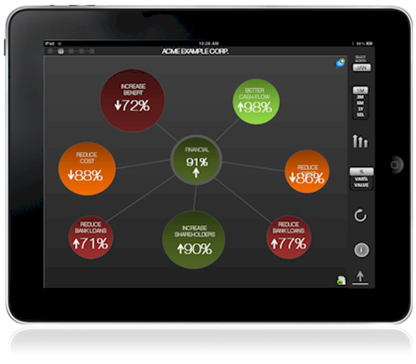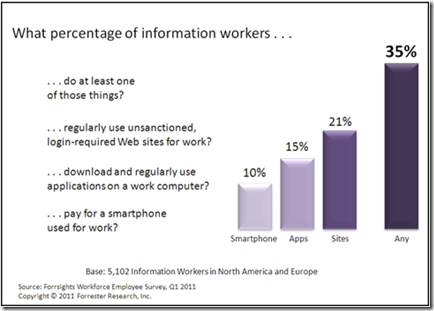 Unless you’ve been a castaway on a remote south Pacific island, you probably have a sense that things are changing rapidly in mobile business intelligence. There’s no shortage of companies expressing a desire to grab attention by claiming that their latest incarnation of mobile BI has fundamentally changed. Often, these proclamations herald in a “new BI era” designed to be personal, more democratized, and intended to focus on individual worker needs and not the interests of IT or the enterprise.
Unless you’ve been a castaway on a remote south Pacific island, you probably have a sense that things are changing rapidly in mobile business intelligence. There’s no shortage of companies expressing a desire to grab attention by claiming that their latest incarnation of mobile BI has fundamentally changed. Often, these proclamations herald in a “new BI era” designed to be personal, more democratized, and intended to focus on individual worker needs and not the interests of IT or the enterprise.
I think most of them are lying.
But there is a shred of truth in their press releases and market positioning. They have all recognized that the second wave of IT consumerization – the consumerization of business apps – is indeed a force that must be harnessed. BI vendors and enterprise executives steeped in the mobile climate that is shaking like an 8.0 earthquake under foot, are well aware that to ignore the consumerization of business intelligence, is perilous.
Forrester, in a Q1 2011 survey of 5,102 information workers in North America and Europe, has directly linked consumerization with business outcomes that IT and every other part of a business cares about: innovation, advocacy, and leadership.
The percentage of information workers in North America and Europe who do something with technology outside of IT control was pegged at about 35% in Q1 of 2011. Employees bring their personally provisioned smartphone or tablet to work, they use unsanctioned Web sites for business tasks, or they download unapproved applications to a work computer. Why? Because they care about the quality of their work and the satisfaction of their customers. The study suggests that by-and-large, they do this in the best interests of their company.
Mobile BI is not immune to the consumerization movement, and if anything, it is on the leading edge of change because tablets have proven to be the most ideal, most useful innovation to occur in business intelligence since the invention of pivot tables. Tablet apps for BI fundamentally transform analytics and data visualizations. But it doesn’t end with the BI basics. Always-on connectedness through social networks, collaborative systems, email, and peripheral news feeds, combine to elevate the science of awareness and knowledge about business operations unprecedented in the checkered history of business intelligence. Almost in the blink of an eye, mobile BI has reinvented itself and not a single BI vendor can be credited with making this happen.
Despite lack of early involvement in the consumerization movement, BI vendors are not sitting idle as workers reshape the intelligence landscape. Yellowfin recently announced the availability of its new iPad app which takes a more consumerized approach to a business intelligence user interface. It uses a Flipboard-like interface which makes it a little easier to locate and drill into business data.
Eduardo Ferrin, creator of Balanced Scorecard for iPad, indicates that businesses of all sizes are adopting his simple but effective strategic planning tool because it is a reflection of what people want, not what enterprises want for their people. According to Mr. Ferrin,
“Users are not happy with current mobile BI offerings because (for the most part) they are just an extension in mobility of their desktop applications which fail on many levels to address key requirements for individual’s work styles and their objectives concerning business data. These current offerings were designed just as another spoke, not as the hub of an entirely new user-focused experience.”
BI is a Dialogue, Not a Monologue
The introduction of social networks, collaboration, and gamification into the folds of business intelligence activities, is as much a disrupter of the BI market as tablets and apps that free workers from physical and information access constraints. Today, the challenge for BI vendors is to find ways to blend information at the edge of the enterprise with operational and performance data to create a new kind of BI experience – one that is designed for more for workers and less for IT.
Encapsulating and institutionalizing scorecard and other business intelligence methodologies in a lightweight and simplified software form factor, magnifies the opportunities to accelerate the capacity for business intelligence deeper into the enterprise. This is the essence of leveraging consumerization to effectuate the democratiation of business intelligence.
The vehicle for achieving this does not yet exist.

